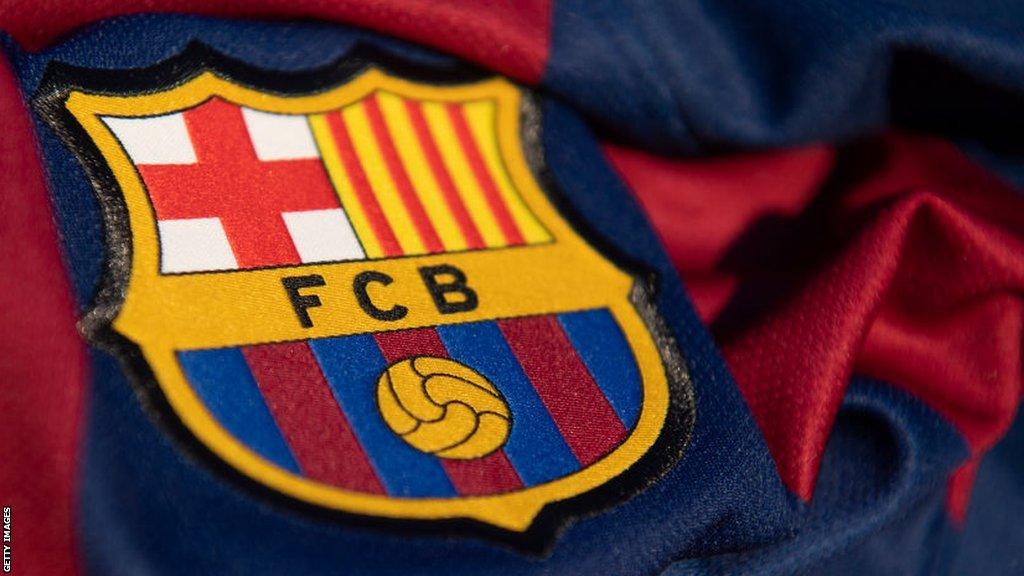Uefa to investigate Barcelona over payments to former referees' official
- Published

Uefa is to investigate payments made by Barcelona to a former vice-president of Spain's referees' committee.
Uefa has appointed ethics and disciplinary inspectors to look into payments allegedly made for favourable refereeing decisions.
A court heard Barcelona have been indicted for "corruption", "breach of trust" and "false business records".
Prosecutors allege Barca paid 8.4m euros (£7.4m) to Jose Maria Enriquez Negreira and his Dasnil 95 company.
Barcelona, who deny any wrongdoing, acknowledged the payments were made to Dasnil 95 between 2001 and 2018.
Uefa said: "Ethics and disciplinary inspectors have been appointed to conduct an investigation regarding a potential violation of Uefa's legal framework by FC Barcelona in connection with the so-called 'Caso Negreira'".
The payments, revealed by radio station Ser Catalunya, came to light following an investigation by tax authorities into Dasnil 95.
"FC Barcelona obtained and maintained a strictly confidential verbal agreement with Jose Maria Enriquez Negreira so that, in his capacity as vice-president of the technical arbitral committee (CTA) and in exchange for money, the latter carries out actions tending to benefit FC Barcelona in decisions by the referees," said the public prosecutor's office.
The Catalan club described the company as "an external technical consultant" which was paid to compile video reports related to professional referees "with the aim of complementing the information required by the coaching staff".
Former Barcelona presidents Josep Maria Bartomeu and Sandro Rosell, as well as Negreira, have been indicted alongside the club.
The lawsuits were brought by the Barcelona public prosecutor's office.
La Liga chief executive Javier Tebas has said that current Barcelona president Joan Laporta should resign if he was unable to explain the payments.
Real Madrid said that "in defence of its legitimate rights, it will appear at the trial when the judge opens it up to the affected parties".

Our beautiful land as you've never seen it before: Sir David Attenborough celebrates the wonders of British wildlife
Go Hard or Go Home: Eight Britons face brutal workouts and terrifying challenges
